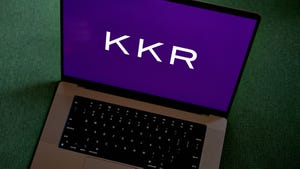Microsoft: OCP Forced Hardware Makers to Rethink InteroperabilityMicrosoft: OCP Forced Hardware Makers to Rethink Interoperability
The industry went from interfacing strictly through standards devised by standard bodies to building interoperable components from the start.

The Open Compute Project and the ecosystem that grew around it have forced data center hardware suppliers like Hewlett Packard Enterprise and Dell Technologies to think differently about interoperability of their products with others, according to the man in charge of hardware design for Microsoft’s global cloud platform.
Before Facebook started the open source hardware and data center design initiative in 2011, every hardware vendor had its own proprietary solutions that only interfaced with each other through standards developed by various standard bodies, such as PCI Express. Today, there’s an entire ecosystem of component manufacturers, hardware vendors, and end users designing products meant to be compatible from the start – disaggregated components that can be mixed and matched to create entire platforms.
OCP “made most of the hardware vendors rethink the strategy of how they build future products to inter-operate with the rest of the ecosystem,” Kushagra Vaid, Microsoft’s general manager for Azure Cloud Hardware Infrastructure, said in an interview with Data Center Knowledge.
Vaid delivered a keynote address on open source data center hardware development this morning at the Data Center World conference taking place this week in Los Angeles. His talk focused on the radical shift the company made a few years ago in its approach to cloud hardware development, standardizing on OCP and open sourcing much of the in-house infrastructure hardware and software work it does.
Late last year Microsoft’s hardware team took open source hardware development closer to the way open source software gets made. Rather than making public a finished design – something Facebook has been doing ever since the start of OCP -- it released a 50 percent complete design for the next-generation server platform that will power its cloud services, betting on the open source ecosystem’s collective brain power to take the design across the finish line.
The design project – codenamed Project Olympus – has seen around 25 non-Microsoft contributors participate since it went open source, Vaid said in the interview. They included CPU and GPU makers, system vendors, component providers, and data center infrastructure companies, the likes of Rittal, Geist, and Schneider Electric. “It’s a wide spectrum of folks,” he said.
Facebook has contributed too. The social network giant has said it will use the Project Olympus motherboard in its own data centers too.
More on Project Olympus: Meet Microsoft, the New Face of Open Source Data Center Hardware
That’s the kind of ground-up collaborative platform building OCP has enabled, and Microsoft has been reaping the benefits of cost reduction and full control of its own infrastructure destiny. It’s no longer beholden to the designs and prices of a handful of hardware incumbents, and neither is Facebook.
But data centers that host hyper-scale cloud platforms make up only a small portion of the global data center capacity. Banks, retailers, manufacturers, insurers, hospitals, governments, energy companies, all operate their own data centers in addition to using cloud services. Their data centers are much smaller, and so are their hardware budgets. Can they take advantage of the open source hardware ecosystem the way Microsofts of the world can?
Today, the answer is yes, but it’s not easy. Most vendors in the OCP community are chasing big orders from the cloud giants and aren’t too eager to do business with low-volume IT buyers.
The OCP organization has been trying to address the problem, the most recent step being the launch last month of an online portal that lists available OCP-compliant and OCP-inspired products. The portal is meant to make smaller-quantity hardware purchases easier, Vaid said. “The OCP Foundation recognizes that issue, and they’re taking steps to resolve that.”
About the Author
You May Also Like







